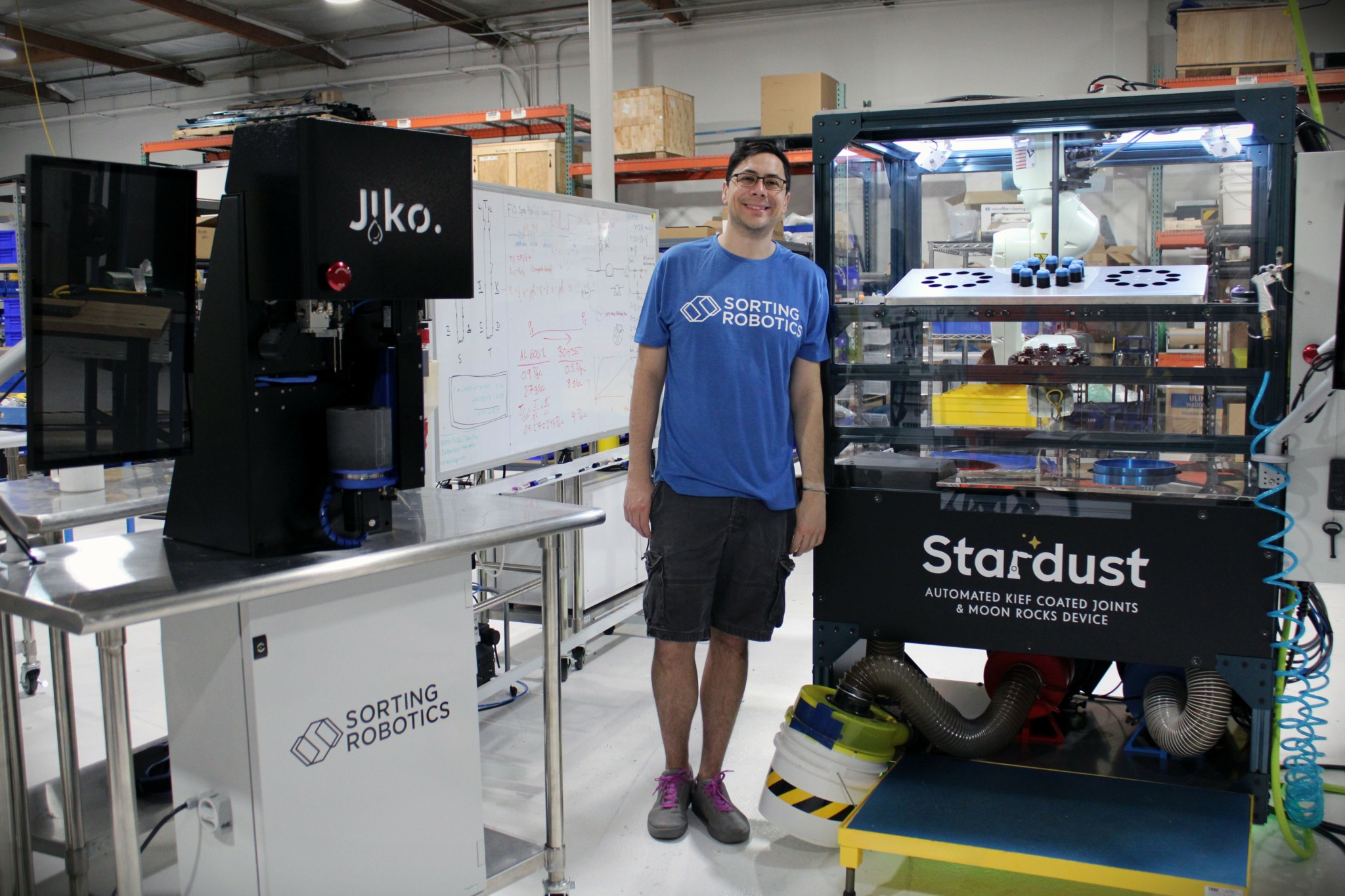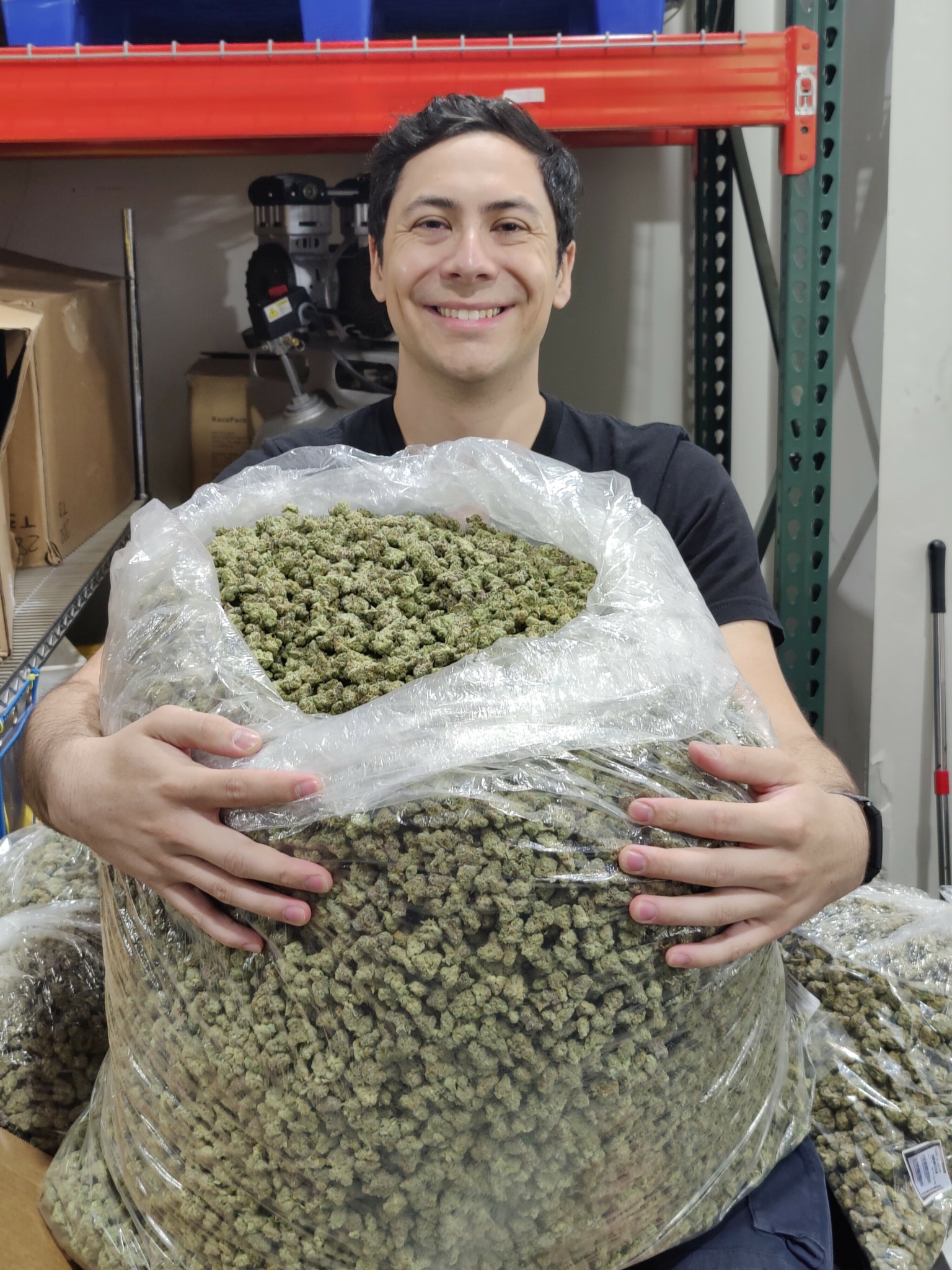We’re excited to introduce you to the always interesting and insightful Nohtal Partansky. We hope you’ll enjoy our conversation with Nohtal below.
Nohtal, appreciate you joining us today. Your ability to build a team is often a key determinant of your success as a business owner and so we’d love to get a conversation going with successful entrepreneurs like yourself around what your recruiting process was like -especially early on. How did you build your team?
When I started building the team at Sorting Robotics, I knew I wanted to make a fast-paced company because I had just been working for four years at NASA, which was very bureaucratic and very slow. But one thing that NASA has, which is very unique and something I haven’t seen in any other company, is a purity towards relentlessly discovering the truth, being brutally honest with yourself and everyone around you, whether it’s on an emotional level or a technical level. And that’s what allows NASA to make things that leave this planet and soar through the stars, the fact that they look at the hard truth and address it head-on. So I wanted to build a team that could do that. And over time, I noticed that it was very difficult to build a team that relentlessly went after discovering the truth and was okay with taking criticisms and was okay with being humble about their designs or their processes or their approaches. Being logical in all cases, almost to a fault, is a very difficult trait to find, and it’s a very difficult trait to find when you need all the other traits that make up marketing, sales, engineering, product, customer support. And so over the years, I’ve learned more from the people I’ve had to part ways with than the ones I brought on. What that has ended up with is a team that is deeply harmonious, that is deeply empathetic to each other and gives everyone the benefit of the doubt. The members of my team don’t get offended when they’re criticized; they lean in to hear more because they know that every comment and every piece of criticism is never made to hurt people. It’s what allows you to be in an environment that says, what are you doing? Don’t get offended, but instead actually explain what you are doing to the person because that person is not challenging your knowledge or challenging how smart you are. They literally just want to know what you’re doing because they want to learn and they want to grow as well. It took me a long time to build that team, probably around three to four years. I think over that time, I have created a very tight-knit, high-functioning team where we’re only 20 people, but we can do the work with 30.
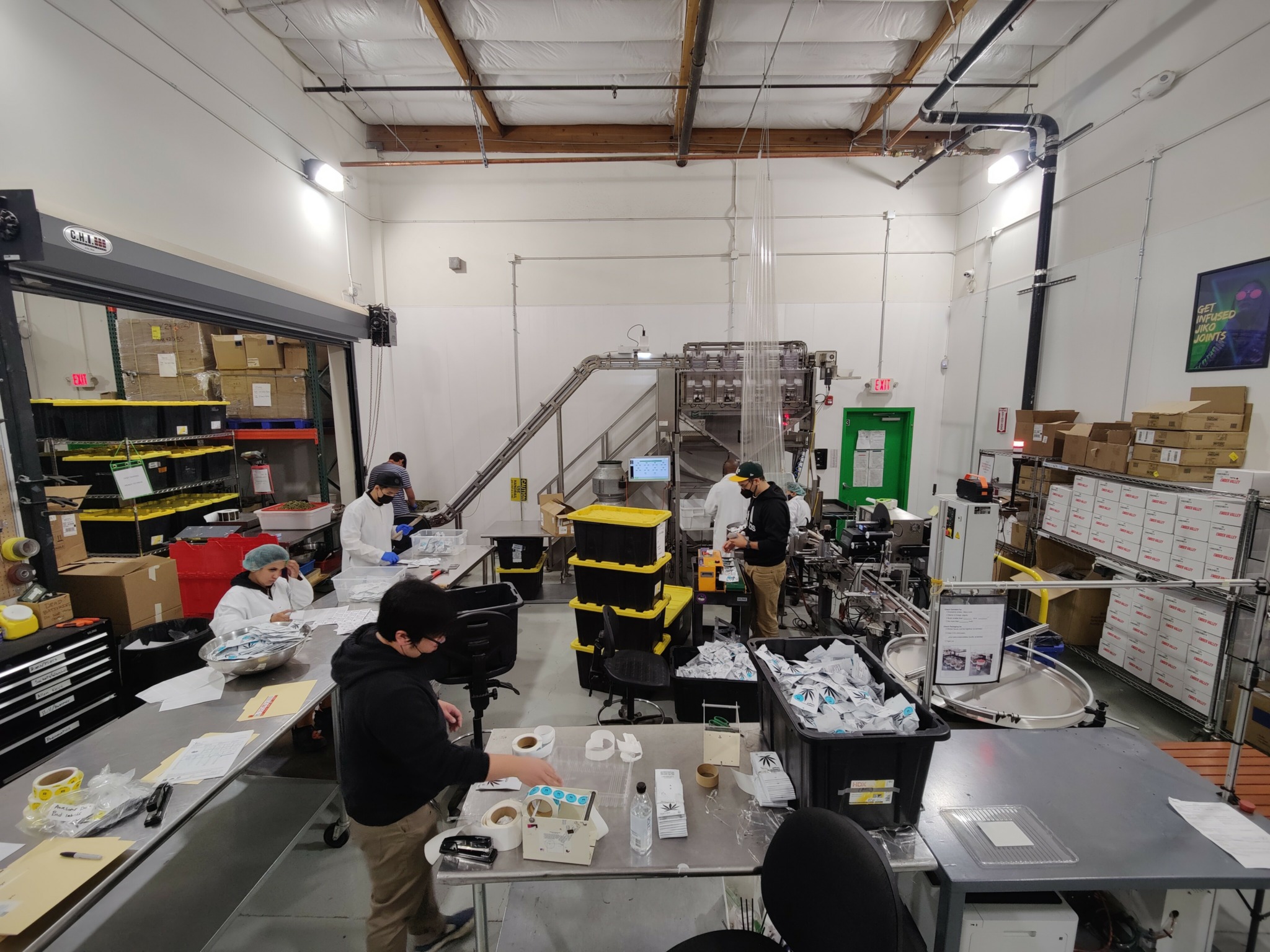
Nohtal, before we move on to more of these sorts of questions, can you take some time to bring our readers up to speed on you and what you do?
My name is Nohtal Partansky, and I’m the founder and CEO of Sorting Robotics. My background is in aerospace engineering and I previously worked at NAS A-JPL on the Mars Perseverance rover, specifically the MOXIE project, which produces oxygen on Mars. However, I quickly realized that traditional aerospace wasn’t moving fast enough for my interests, so I decided to start my own robotics startup called Sorting Robotics. Sorting Robotics began as a company focused on automating tedious tasks like sorting trading cards with our first product called the “Roca Sorter;” but eventually we pivoted to the cannabis industry. We now build specialized robotic systems and software to automate processes like pre-roll production, packaging, and cartridge filling, helping our customers increase efficiency, reduce labor costs, and improve product quality.
What sets Sorting Robotics apart is our engineering-driven approach and deep integration of computer vision and artificial intelligence into robust industrial hardware. We don’t just automate tasks; we transform entire production workflows, allowing operators to focus on higher-level work instead of repetitive tasks. I’m especially proud of creating technology that solves tangible, real-world problems in industries that previously lacked sophisticated automation solutions. Our mission is clear: deliver high-quality, reliable automation that scales easily, drives operational efficiency, and empowers our customers to grow their businesses sustainably.
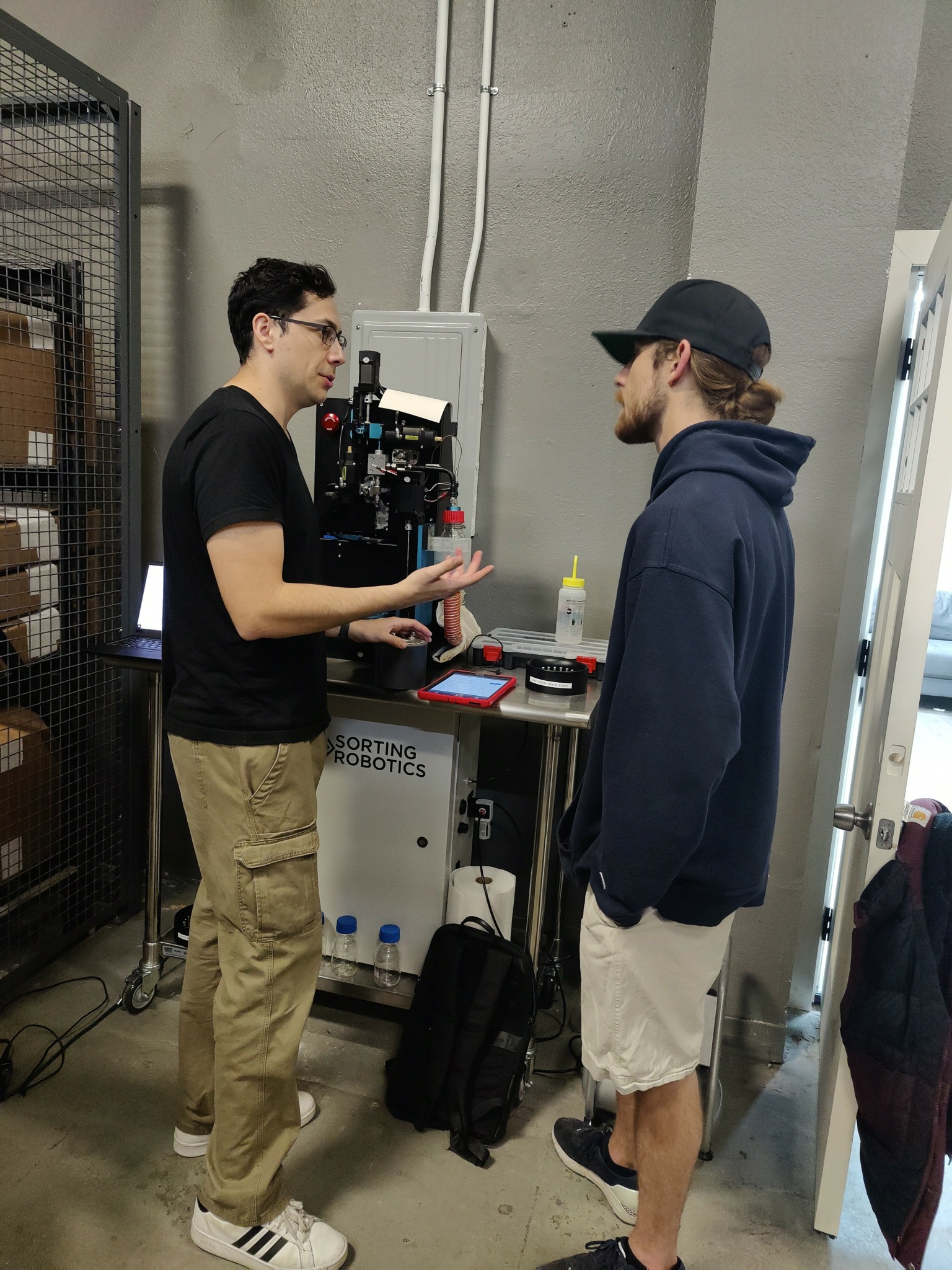
Can you tell us about a time you’ve had to pivot?
The main pivot that I had to do in sorting robotics was the transition from the trading card industry and the Roca Sorter to the cannabis industry and building automation for cannabis manufacturers. That was a very difficult transition, but thankfully I did it under the guidance of Y Combinator during the winter 2019 batch. It was really difficult trying to figure out a bigger market when we decided to move above and beyond the trading card industry. We spent five months doing customer development, talking to founders, talking to business owners, trying to understand applications for our robotics technology and our skill set. It was just the founders at the time and one technician. It was so difficult to understand what any market really needed. Thankfully, we eventually found a few friends in the cannabis industry and they were building their own companies. They were able to open up the hood and let us peek inside to see what processes and procedures went on inside the industry. Since then, we’ve mastered the art of customer development and understanding deeply what industries operate under, especially in the agricultural sector.
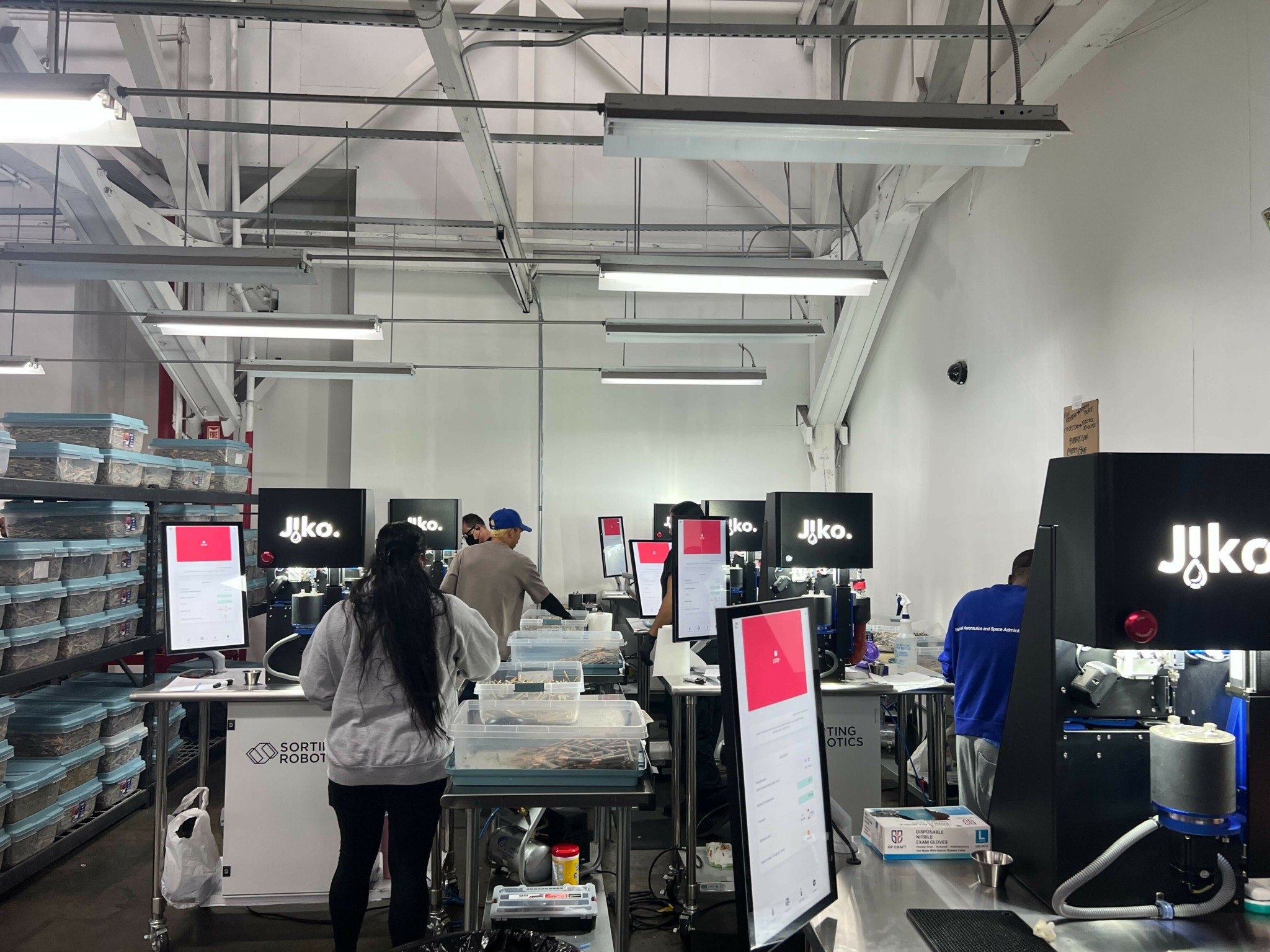
How did you put together the initial capital you needed to start your business?
I started sorting robotics with $6,000 and a friend that had our baseline computer vision algorithm. The company was started with me and two other co-founders, and me and one of the co-founders both put in $3,000, and then my third co-founder had been working on his side project for about two years, which was a computer vision algorithm to do card identification for Magic the Gathering. It was a shoestring budget, but it allowed us to build a prototype for our very first product, and then we were able to sell before we built. So we used $6,000 to make our prototype, we demoed it to two different groups, and those two different groups collectively bought four machines. From there, those people paid us about half of the eventual cost of the machine, which was $30,000, we were then able to get an SBA loan for about $60,000; that was our initial seed capital. After that, we cash flowed the company until we raised money for our break into the cannabis industry. We raised $2.5 million out of Demo Day, and used that to develop our technology for the much bigger market that was cannabis.
Contact Info:
- Website: https://sortingrobotics.com
- Instagram: https://www.instagram.com/sortingroboticsinc/
- Linkedin: https://www.linkedin.com/company/sortingrobotics
